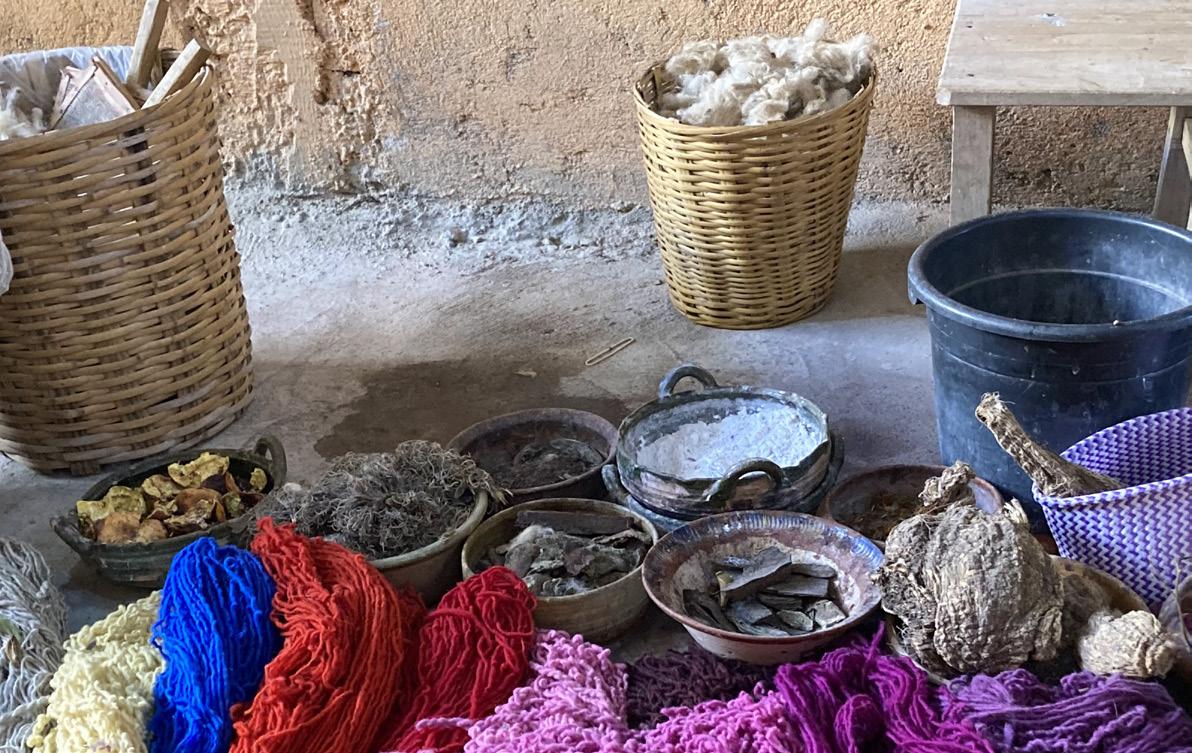
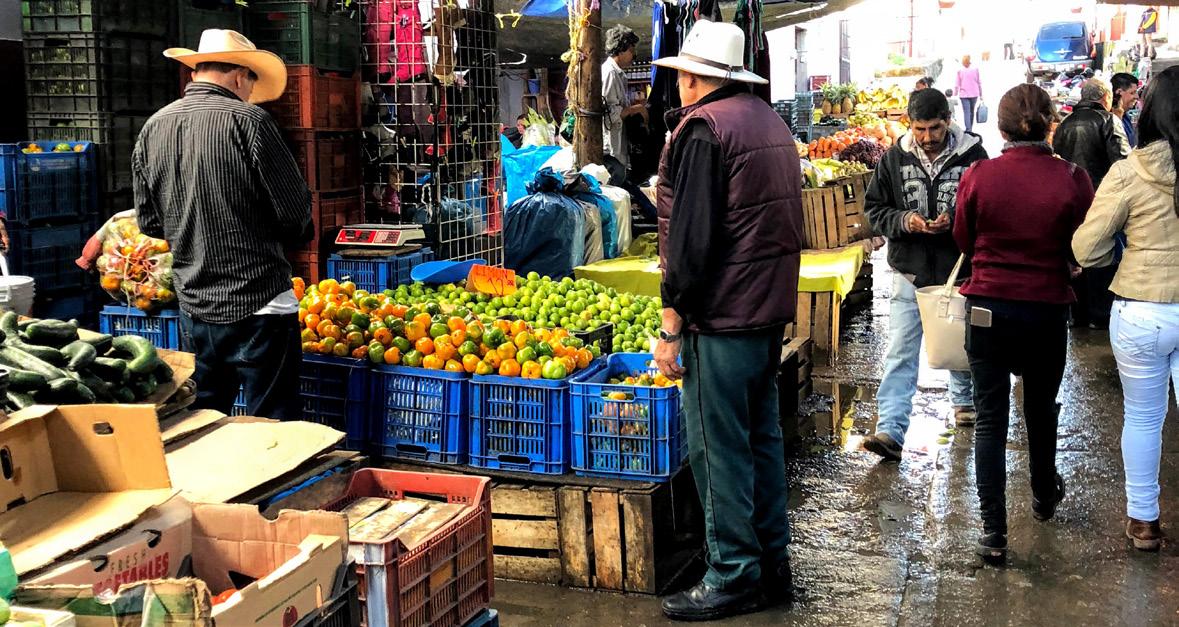
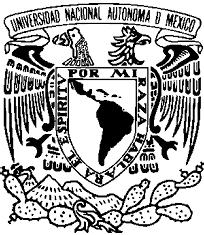
A JOURNEY THROUGH THE SUBSYSTEM OF HUMANITIES IN UNIVERSITY CITY
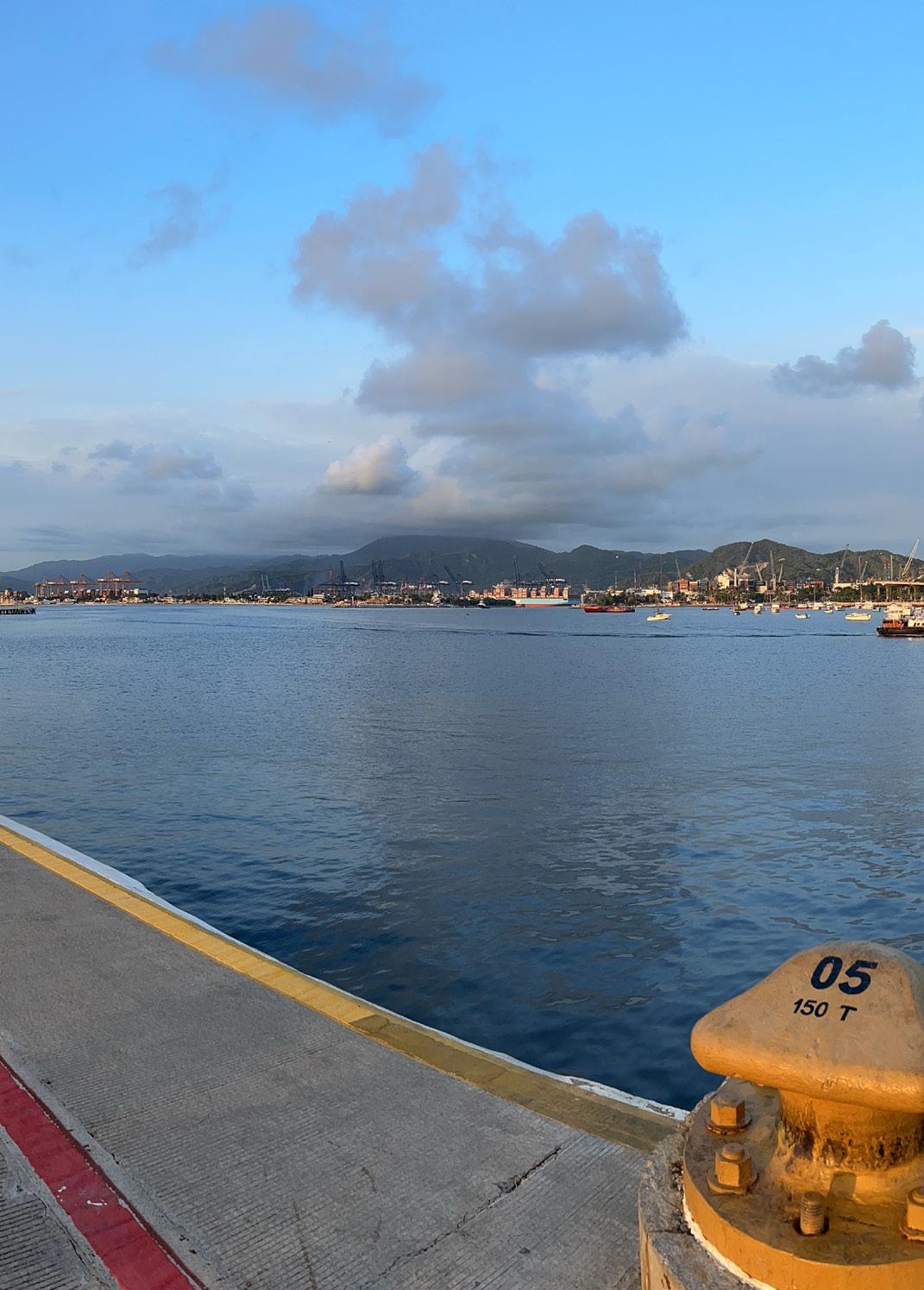
UNAM on the way to the Sustainable Development G als

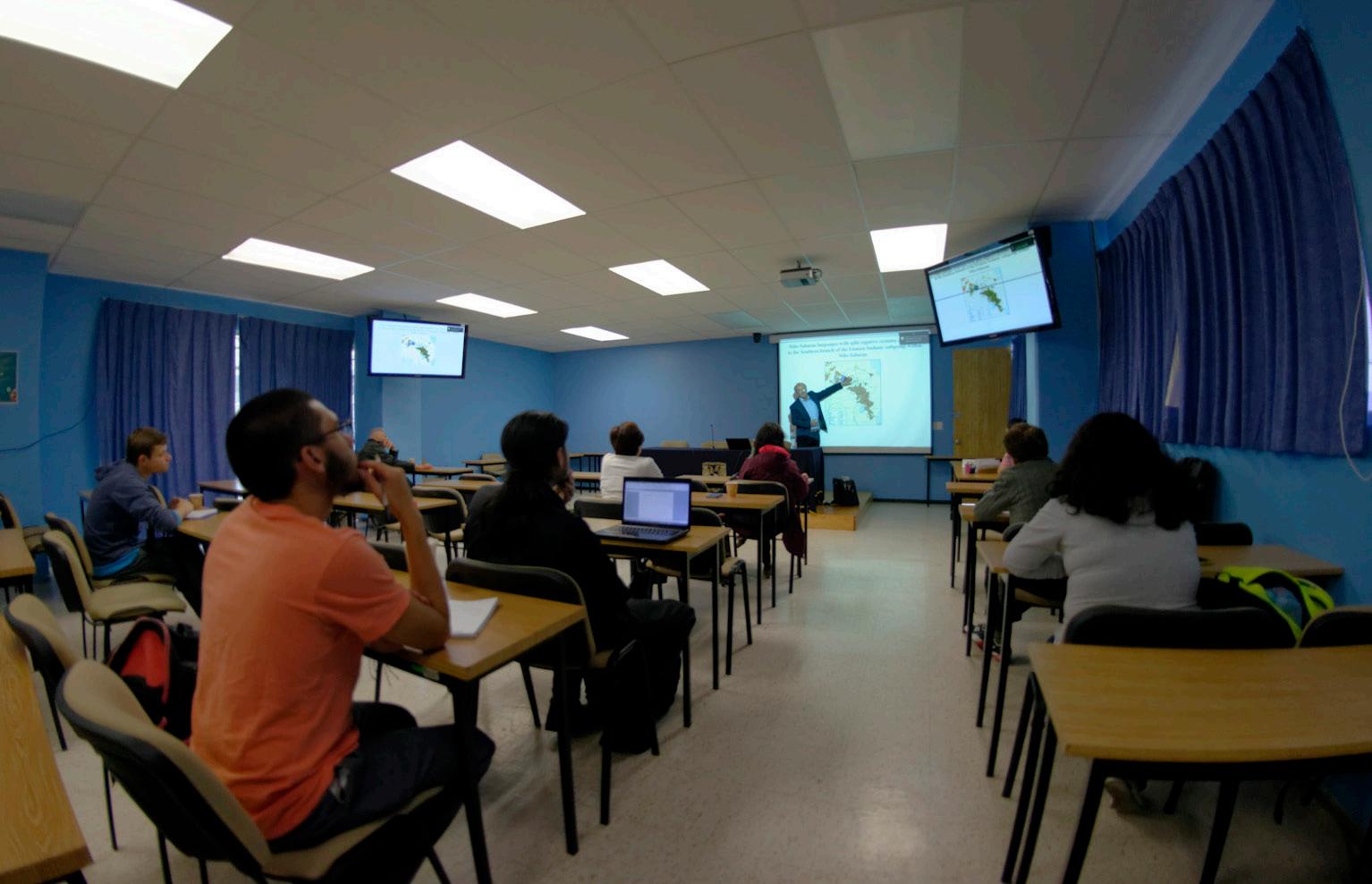
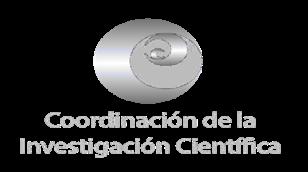
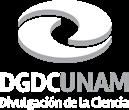



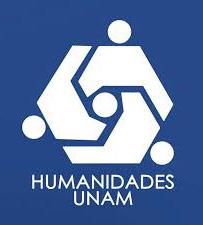
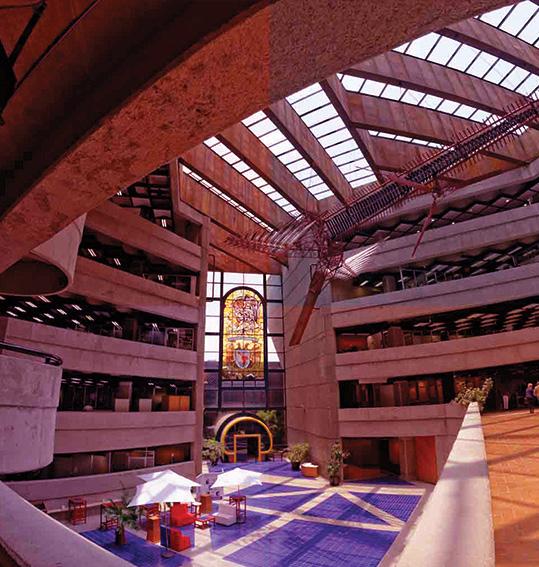
Coordination of Humanities
Institute of Philological Research
Institute of Philosophical Research
Institute of Aesthetic Research
Institute of Social Research
Institute of Economic Research
Institute of Juridical Research
University Program of Studies on Higher Education
Institute of Historical Research
Institute of Bibliographical Research
Institute of Research on the University and the Education
Institute of Anthropological Research
University Program for Studies on Asia and Africa
University Program in Bioethics
University Program in Development Studies
Interdisciplinary Research Center on Sciences and Humanities
Center for Research and Gender Studies
Institute of Research on Library and Information Sciences
Center for Research on North America
Center for Research on Latin America & The Caribbean
University Program of Studies in Cultural and Intercultural Diversity
www.humanidades.unam.mx
www.iifilologicas.unam.mx
www.filosoficas.unam.mx
www.esteticas.unam.mx
www.iis.unam.mx
www.iiec.unam.mx
www.juridicas.unam.mx
https://www.puees.unam.mx
www.historicas.unam.mx
www.iib.unam.mx
www.iisue.unam.mx
www.iia.unam.mx
http://suea.unam.mx
www.bioetica.unam.mx
www.pued.unam.mx
www.ceiich.unam.mx
www.cieg.unam.mx
www.iibi.unam.mx
www.cisan.unam.mx
www.cialc.unam.mx
www.nacionmulticultural.unam.mx
HUMANITIES
CoHu IIFl IIFs IIE IIS IIEc IIJ PUEES IIH IIB IISUE IIA PUEAA PUB PUED
INDEX 1 2 3 4 5 6 7 8 9 10 11 12 13 14 15 17 18 19 20 21 22 SOCIAL SCIENCES IIBI CIALC CISAN PUIC CEIICH CIEG
Coordination of Humanities (CoHu)
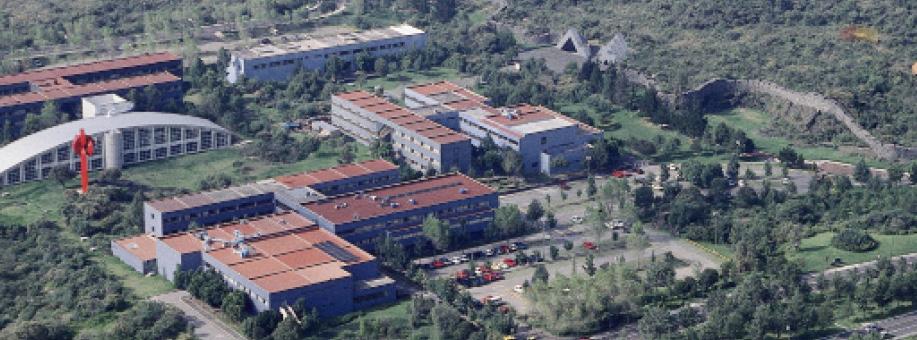
Established in 1945, the Humanities Coordination's mission is to drive forward research endeavors within its domain, particularly focusing on Humanities and Social Sciences.
The aim is to foster academic growth and elevate the prominence of the 29 entities comprising its Subsystem. To consolidate its forefront position in both theoretical and applied research within its disciplines, the University actively fosters collaborations with university entities, governmental and non-governmental institutions, both nationally and internationally. It continuously engages in identifying key issues crucial for national development, offering solutions, and implementing knowledge dissemination programs within the humanistic and social spheres.
The Coordination of Humanities encompasses 11 Institutes, seven centers, nine University Programs, two Academic Units, two museums, and two extension houses. Nineteen of these entities are located within Ciudad Universitaria (CU). The University Programs for Human Rights, of City Studies, Studies of Cultural Diversity and Interculturality, and Studies About Democracy, Justice, and Society are located in Mexico City in Coyoacán, the City Center, Álvaro Obregón and Tlaltelolco, respectively. The Casa de las Humanidades stands in Coyoacán, and the Casa Universitaria del Libro, in Roma Norte. In CDMX, The CoHu also houses the University Program of Studies on Higher Education, the University Program of Government, the Museum of San Agustín: Languages, Information and Knowledge and, the Museum of the Woman, while in other states along the country manages five more entities.
Through its academics, the CoHu delves into the analysis of the social, economic, political, cultural, and civilizational components as well as the spiritual production of humanity. In response to the challenges posed by Social Sciences and Sustainable Development Goals, it conducts diverse studies at regional, national, and international levels, many of them in co-participation with the communities.
The Coordination is committed to supporting research through postdoctoral scholarships, academic cooperation, exchange programs, and research stays at other institutions. Moreover, it nurtures a culture of research from an early stage, offering the program "Youth towards Research in Humanities and Social Sciences" for high school students and providing access to the general public to the Humanindex Information System, featuring the bibliographic production of its researchers. Under its purview fall the National Library, the National Newspaper Library of Mexico, and the Museum of Constitutions.
The Editorial Program embraces the university's longstanding collections to support teaching and research endeavors.
Through the General Direction of Humanities Dissemination, the Coordination organizes communication and outreach activities within and beyond the campus. Here are presented the departments located within Ciudad Universitaria (CU).
*The acronyms belong to the names in Spanish
1
COORDINACIÓN DE HUMANIDADES
Institute of Philological Research (IIFl)
The Mexican culture is a blend of the Greek, Latin, Hispanic, and American Indian literature. Therefore, the Philological Research Institute is devoted to the study of these cultures. It joins eight research sections: Center for Literary Studies, Center for Classical Studies, Center for Hispanic Linguistics, Center for Mayan Studies, Center for Poetry, Indigenous Language Seminar, Hecdotic Seminar, and Hermeneutics Seminar.
Dr. Rubén Bonifaz Nuño founded the Institute in 1973 by bringing together four centers that were part of the Coordination of Humanities and were linked in one way or another, to philological research.
The Institute's portal contains 81 years of research about colonial Mexico. It also features a project called "The Royal Botanical Expedition to New Spain," carried out between 1787 and 1803. This project is of high historical and scientific value because it brings together the work of a multidisciplinary group of 50 specialists from the Institutes of Philological Research and, of Biology. The goal of the project is to restudy each of the species, reassess the significance of the expedition, and highlight the importance of the work of the Mexican scientist José Mariano Mociño.
This entity participates in the postgraduate programs in Linguistics, Mesoamerican Studies, Literature, and a
Master's in Teaching for Higher Education (MADEMS), in collaboration with the Faculty of Philosophy and Letters in the first, the Center for Teaching Foreign Languages in the second, and nine other UNAM dependencies in MADEMS.
With the National School of Higher Studies, Morelia Unit, and the Faculty of Philosophy and Letters, the Institute developed a Bachelor's degree curriculum in Intercultural Literature. This program examines Mexican culture through literature rooted in hispanic, classical, and indigenous traditions, essential to understanding our identity and can contribute to achieve the Sustainable Development Goals 4 and 10, which are focused respectively on Quality Education and Reduced Inequalities.
The Institute publishes nine collections of books and journals: Acta Poetica, Anuario de Letras, Estudios de Cultura Maya , Estudios Mesoamericanos, Literatura Mexicana, Medievalia, Nova Telvs, and Tlalocan

2 INSTITUTO DE INVESTIGACIONES FILOLÓGICAS
Institute of Philosophical Research (IIFs)
It cultivates 14 research areas, and it is dedicated to producing original knowledge in philosophy in an argued, rigorous, intelligible and systematic manner, training and updating professors and researchers, and to disseminating philosophical knowledge.
Its subjects of study are epistemology, aesthetics, ethics, philosophy of science, the mind, religion, law and language; philosophy in Mexico, political philosophy, history of philosophy, philosophy of history and intellectual history, as well as logics and metaphysics.
Its academic personnel participates training human resources for research and teaching, as well as in the creation of curricula and programs for secondary, undergraduate and graduate education throughout the country.
The Institute carries out summer and sabbatical stays for academics of other institutions, and its researchers participate in national and international networks.
Its 70 individual and collective research projects include Abstraction, reasoning and argumentation; Emotion and cognition; A comparative approach to genomic, race and mixing in Latin America; Epistemology and Valuation. The first person and its perceptions; Conceptual problems of the biological basis of mind and language; Liberalism in Mexico: history, theory and contemporary issues; Limits of trust: justice, law and civic culture; and Alternatives for teaching and learning topics and contents of science and technology in intercultural contexts, are a few of these projects.

It cooperates intensely with the teaching practice of the colleges and schools at the UNAM, in particular, with the School of Philosophy and Literature, with whom it shares responsibility for the graduate programs in Philosophy and Philosophy of Science.
Their research contributes to Sustainable Development Goals (SDG) 4: Quality Education; 5: Gender Equality, 10: Reduced Inequalities; 16: Peace, Justice and Strong Institutions, and 17: Partnership for the Goals.

3 INSTITUTO DE INVESTIGACIONES FILOSÓFICAS
Institute of Aesthetic Research (IIE)

Its origins date back to 1935 when the renowned art historian Manuel Toussaint founded the Art Laboratory. The Institute of Aesthetic Research has the purpose of studying the history, theory, and criticism of the arts, as well as the conservation and defence of the national artistic patrimony in its Pre-Hispanic, Colonial, Modern, and Contemporary periods.
Its subjects of study are architecture, visual arts, film, photography, music, dance, literature, and theatre. Thus contributing to the humanistic national and international culture, in the research areas it currently develops: indigenous, colonial, modern, contemporary, and world art and artistic thought.
Some of its projects are Pre-Hispanic mural painting in Mexico; Challenge to stability, artistic processes in Mexico 1952-1967; Multiple spaces and the ethos of performance; Documentation and Conservation of the Modern Movement in architecture, among others.
Together with two laboratories of the UNAM's Institutes of Physics, and of Chemistry, and with the National Institute of Nuclear Research, the IIE developed the National Laboratory of Sciences for Research and Conservation of the Cultural Heritage (LANCIC), to which has joined the Center for Research of Corrosion of the Autonomous University of Campeche.
The research and work carried out there transcend the field of conservation and restoration to reach a scientific dimension that allows understanding the cultural life of objects from a broader perspective where the history of art dialogues effectively with the so-called "hard sciences."
The Institute collaborates with the School of Philosophy and Literature in the graduate program in Art History. It also participates in the bachelor's degree in History of Art
taught at the National School of Higher Studies in Morelia (ENES-Morelia) and in the Benito Juarez Autonomous University of Oaxaca, one of the states and regions with the most artistic and cultural richness in the country, where the Institute also has a branch that carries out the tasks of research and dissemination.
The Institute supports research through the Justino Fernandez Library, the Manuel Toussaint Photographic Archive, which holds an outstanding record of photographic materials, both digital and analogue, as well as multimedia material, mainly related to Mexican art in all its periods, and the Laboratory for Artwork Diagnostics.
By revaluing culture and art, the IIE contributes to the SDGs: 4, Quality Education; 5, Gender Equality; 10, Reduced Inequalities; 16, Peace, Justice and Strong Institutions, and 17, Partnership for the Goals.
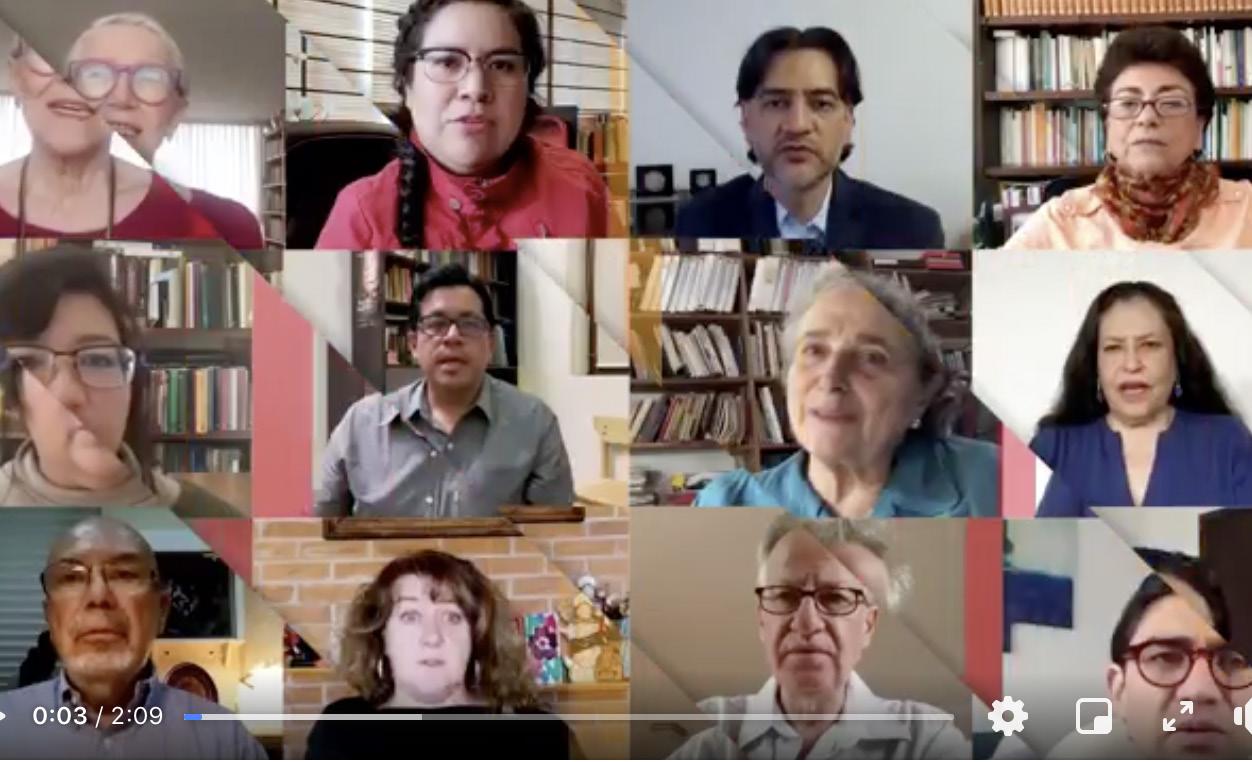
4 INSTITUTO DE INVESTIGACIONES ESTÉTICAS
Institute of Social Research (IIS)
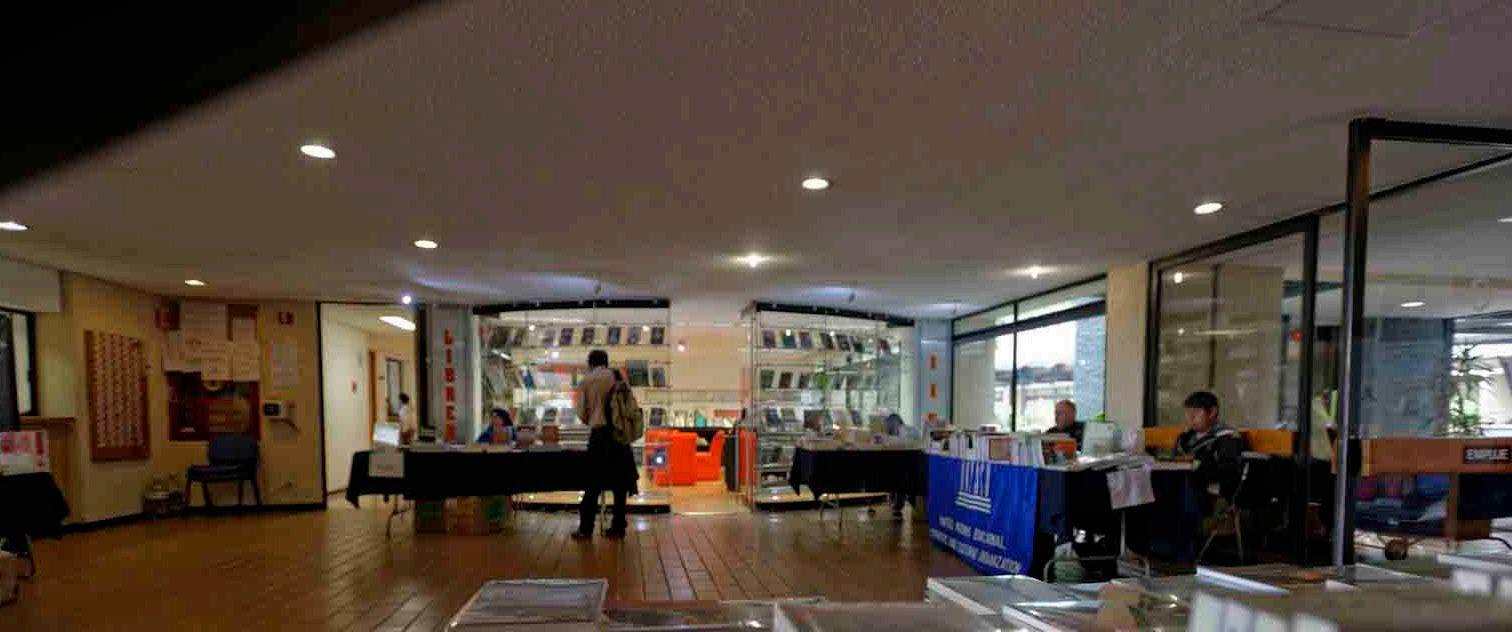
Created on April 11, 1930, its mission is to carry out the scientific study of the social sciences field based on a diversity of analytical frameworks, perspectives, and methodologies. It is the oldest of the 16 institutes and research centers ascribed to the Coordination of Humanities.
Some of its fundamental activities are research and human resource training via teaching and introduction to research. Ninety-one academics develop research projects through individual and collective initiatives.
The IIS has the following research areas: Agrarian Studies, Education and Science Studies, Urban and Regional Studies, Social Actors and Processes, Population and Demographic Studies, Society and Culture, and Political Institutions. Besides, it has permanent research seminars with institutional recognition.

Within UNAM, the Institute is the academic entity that participates in the graduate programs of Business Administration; Political, and Social Sciences; and Urban Planning. Its applied Social Research and Opinion Studies Unit (UDESO) collaborates with dependencies inside and outside of UNAM, and other institutions, such as Secretaries of State, the Audit-Office of the Mexican Bank, the System for Integral Family Development, the National Electoral Institute, the Mexican Youth Institute, and the National Human Rights Commission.
Its researchers contribute to the achievement of the Sustainable Development Goals in terms of Quality Education (4), Sustainable Cities and Communities (11), Reduced Inequalities, among others.
Its Mexico Indígena photographic archive stands out with a collection of more than 5,000 images by professional photographers Raúl Estrada Discua and Enrique Hernández Morones, as well as its blog "Resonancias", a digital initiative that seeks to disseminate, in various formats multimedia, projects, methodologies, research results, and reflections developed by the academic community of the IIS-UNAM. The IIS also publishes: Revista Mexicana de Sociología (RMS), Revista de Investigación Social (RIS), and Discurso.
5 INSTITUTO DE INVESTIGACIONES SOCIALES
University Program of Studies on Higher Education (PUEES)

The University Program of Studies on Higher Education (PUEES) has as main objectives to promote, develop and consolidate multidisciplinary research on higher education policies and systems in Mexico and the world, to generate and systematize knowledge about its characteristics and effects.
In the PUEES, researchers analyze public policies for higher education, as well as the organization and government of the sector institutions.
The Program has 23 permanent researchers and many other national and foreign affiliates, mainly from Latin America, the United States, and Europe.
The immediate background of the PUEES is in the Seminar of Higher Education of the UNAM (SES), an initiative that emerged and consolidated as a space for research, teaching, and dissemination on higher education issues, since 2004, this, in turn, originated in the Seminar of Studies on Higher Education in the year 2000.
During this time it published 20 books on public higher education and UNAM, nine research notebooks, hundreds of academic articles in specialized journals, thousands of media outlets, and multiple specialization courses.
In its Steering Committee participate the Humanities Coordinator, the Director of the PUEES, and the directors of the Research Institutes on University and Education, Economic, Social; the Faculties of Philosophy and Literature, of Higher Studies Aragón, of Economy, and Psychology, as well as of the Centers of Interdisciplinary Investigations in Sciences and Huma-
nities and Regional of Multidisciplinary Investigations.
During the COVID-19 Pandemic, its researchers analyzed educational inequalities and the digital gap, observing that only half of the students have an internet connection to access their classes, and only four percent of rural residents have an internet connection at home. Only 11 percent of indigenous language speakers have a computer, and solely 10 percent have access to the internet. One of its last books "Higher education in Mexico. Expansion, diversification, and financing during the 2006-2021 period" was co-edited with the Institute of Research on the University and Education (IISUE) and presents a detailed analysis of the growth and expansion of higher education and its financing in the indicated period, offering detailed information on the federal budget assigned to the institutions and higher education programs, analyzing the principal financial indicators .
Its researchers strengthens the UNAM's efforts to contribute to the SDGs regarding Quality Education (4); Decent Work and Economic Growth (8); Industry, Innovation and Infrastructure (9); Reduced Inequalities (10), and Responsible Consumption and Production (12), among others.
6
Institute of Economic Research (IIEc)
The Institute of Economic Research (IIEc) is, without a doubt, the institution to best understanding the Mexican economic policies; the remittances, from a macroeconomic point of view, the situation of some of the largest companies in Mexico or the analysis of the territorial, and the sustainable development in the country.
Founded in late November of 1940, the IIEc develops academic programs in collaboration with the graduate programs in Economics and Latin American Studies. Its academic work fulfilled by 121 researchers and technical academics and has been organized in 14 research units: World, Industrial, Primary Sector, Urban and Regional Economy, Applied, Labor, Technology, Fiscal, Financial, Education, Science and Technology, And Energy Sector Economy, Economic History, Development Political Economy, Environmental, Knowledge and Development Economy, Fiscal and Public Sector Studies.
With a particular focus on the Mexican economy, the Prospective Macroeconometric Analysis Coordination is within the Institute's academic structure. The IIEc carries out extension activities through the Center for Continuous Education.
The Institute publishes: Ola Financiera, an electronic magazine with rigorous reflection and analysis on the financial and international economy; Problemas del Desarrollo, and Economía UNAM. It also has a vast book production of books.

Its Information and Documentation Center "Maestro Jesús Silva Herzog", has a valuable specialized collection of bibliographic information related to economic development, history, theory, econometrics, environmental, agricultural and natural resource economics, financial economics, industrial organization, labour and demographic; macro and microeconomic economics, monetary, public and political economics, urban economics, international, rural and regional economics, among others.
Its radio programs "Momento económico", and "La economía y usted", highlights by debates on the conjuncture that involve the Mexican society, such as the food crisis, indigenous communities, remittances, and labour reform. In other media, It also participates in the analysis of contemporary issues, such as the effects of the COVID-19 pandemic, Mexico-US economic relations, infrastructure construction projects, the Mexican federal government budget, and several more.
Its researchers strengthens the University's efforts to contribute to the SDGs, regarding Zero Hunger (1), Quality Education (4), Decent Work and Economic Growth (8), Industry, Innovation and Infrastructure (9), Reduced Inequalities(10), and Responsible Consumption and Production (12), among others.
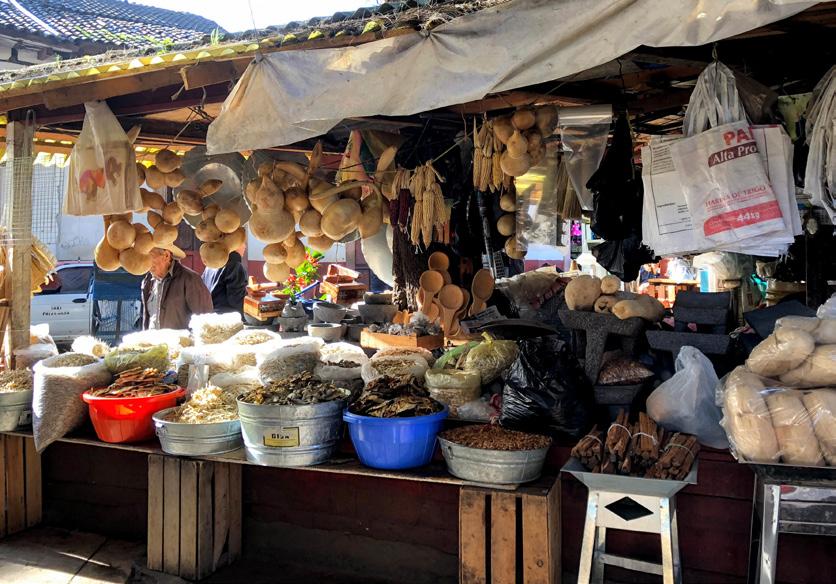
7 INSTITUTO DE INVESTIGACIONES ECONÓMICAS
Institute of Juridical Research (IIJ)
The Institute of Juridical Research (IIJ) works in the following areas: Rights, migration and mobility; Roman law and Romanist tradition; Law and the informal economy; Methodology of juridical research and teaching of law; Energy Matter; Towards an international rule of law; Institutions, political representation and democracy; Public policies and development, economic analysis of the law and economic competitiveness; Promotion and protection of the rights of children; Accusatory criminal system in Mexico, and Legislative transparency, accountability and democracy.
The Institute publishes 12 periodic journals and multiple books and collections available online.
Some of the lines cultivated by its 100 researchers are State reform; Public and Private Powers; Discrimination; Democracy Theory; Legal Protection; Rights of People and Family; Administration of Justice; Coastal and Maritime Zones; Environmental Indigenous Rights; Parliamentary Law; and Control of Power, among others of great importance for the understanding and improvement of the national and international judicial practice.
It also has a Legislation and Jurisprudence Documentation Unit, for the compilation, analysis and systematization of legislative and jurisprudential documentation, in Mexico and abroad, that spans 60 years. Also, the UNAM-JURE system is one of the most

outstanding legislative databases in the country. Other repositories developed by the Institute are de CFE-JURE and the DF-JURE, as well as others related to electoral, labour, and constitutional sources of information.
Some of its highlights include the virtual law and video libraries, as well as the TV channel TV Juridicas (www. juridicas.unam.mx/tvjuridicas/), which make available to law students a series of indispensable materials. The domain juridical.unam.mx registers each year more than 18,500,000 visits, of which, around ten per cent come from 170 countries.
The doctoral program, operated by the IIJ, trains researchers in the field of judicial knowledge. Its academic personnel also participates in diverse teaching programs at UNAM, as well as in courses, certificate degrees and master programs for personnel of governmental institutions in collaboration with academic entities throughout the country.
It offers courses on Social Impact Assessment (EvIS) in projects of the Energy Sector and of the Human Right to Health, in which it addresses ethical and social issues and the scenarios and challenges in the post-pandemic world.
Its academics contribute to understanding and developing the legal structures necessary to achieve the Sustainable Development Goals: 1, No Poverty; 3, Good Health and Well-being; 4, Quality Education; 5, Gender Equality; 7, Affordable and Clean Energy; 8, Decent Work and Economic Growth; 1, Reduced Inequalities; 16, Peace, Justice, and Strong Institutions, and 17, Partnerships for the Goals, among others.
8 INSTITUTO DE INVESTIGACIONES JURÍDICAS
Institute of Historical Research (IIH)
It was Founded in 1945 by a renowned group of historians, professors of the School of Philosophy and Literature, in order to guide the studies of the past, particularly of Mexico, and to contribute to the generation of historiographic knowledge of the highest quality.
Its 57 researchers and 24 academic technicians generate original knowledge regarding the Indigenous Cultures History, Colonial, Modern and Contemporary History, and World History. All of which have positioned the Institute as one of the reference points for research.
Among its projects are: History and Memory of the Indigenous People of America; Political and Economic History of the Church in Mexico; Children as an Economic Factor in Mexico City: Education, Labor and Child Consumption, 1940-1970; Development of the Veracruz Bay, 16th-21st Centuries: Environmental and Patrimonial Impact; Environmental Impact of the Harbor Infrastructure; Conceptions of Time and Space in Pre-Hispanic Mexico; Mesoamerican and New Spain food Systems in the 16th Century; Power Bonds in Colonial Mexico, Kinship, Affinity and Patronage in the Elite of New Spain in the 17th Century; History of Credit and Banking in Mexico; Urban and Environmental History in Mexico City, 19th and 20th Centuries; Health, Hygiene and Reconstruction of Mexico City, 1890-1940.
Also remarkable are: The history of México and the United States in the second half of the 20th Century; The history of the territory and the territoriality, and the history of the representation of the indigenous people and the nation-state in the 19th and 20th Centuries.
Its YouTube channel broadcast national and international conferences, where its researchers participate. It has an extensive collection of podcasts
and television programs on historical topics, and it also manages the UNAM's Institutional Historical Repository, with digital documents for research, teaching, dissemination, and others of a patrimonial nature, protected or generated by the Institute. It has as well research microsites.
With its work, the IIH contributes to the understanding of SDG 2, Zero Hunger; 10, Reduction of Inequalities; 13, Climate Action; and 16, Peace, Justice and Solid Institutions.
Since 2002, its Seminar on the Social and Cultural History of Health and Illness in Mexico has studied the actors, institutions, ideas and ideals related to the changing definitions of individual and collective health, and the projects and actions to contain, combat or eradicate acute, chronic, endemic or epidemic diseases in different spaces and temporalities, contributing with this knowledge to SDG 3, Health and Well-being.
Several of its academics participate in the Bachelor’s degree in History, as well as the graduate degrees in History and Architecture. The entity is part of the academic committees of Ethnohistory, Archeology, Latin American Studies, Hispanic Literature, Architecture and Sociology. The Institute participates in the History Olympics of Mexico.
In addition to specialized books, the Institute publishes the journals: Estudios de Cultura Náhuatl, Estudios de Historia Novohispana, Estudios de Historia Moderna y Contemporánea de México, and the newsletter Históricas.

9 INSTITUTO DE INVESTIGACIONES HISTÓRICAS
Institute of Bibliographical Research (IIB)
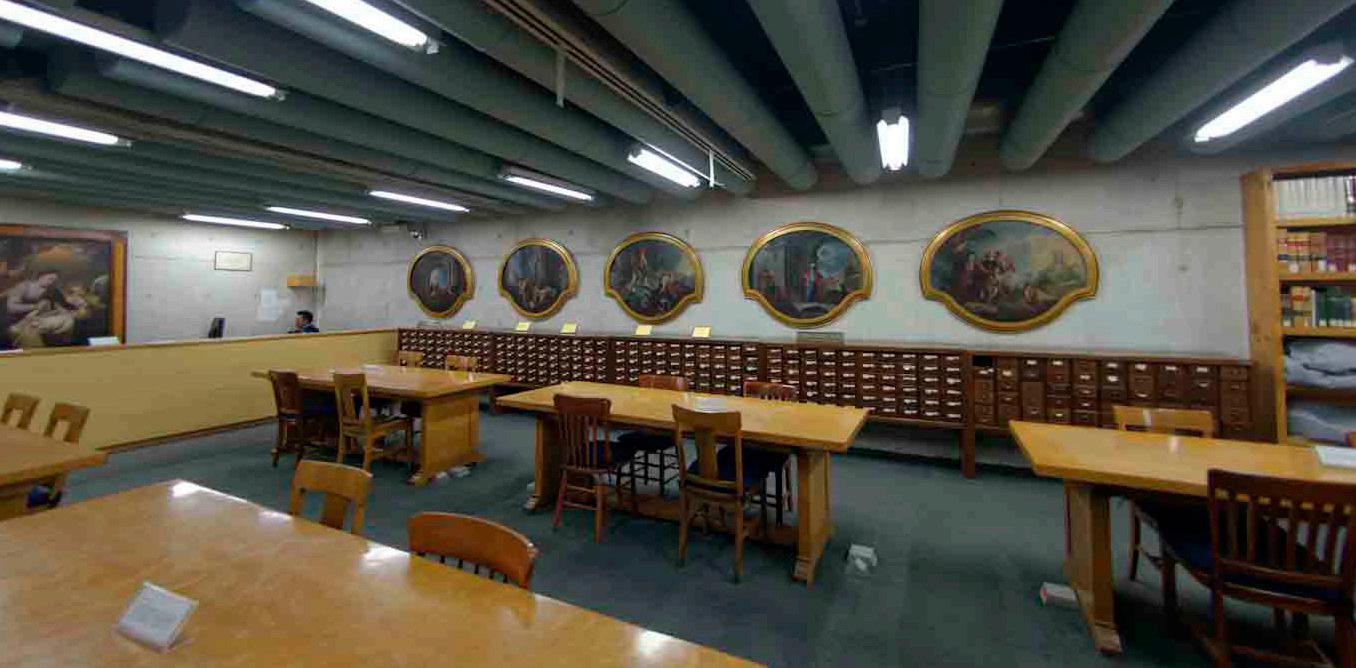
It has the mission to generate knowledge about the written tradition in Mexico, located in the bibliographic and hemerographic patrimony of Mexico through the archives of the National Library and the Newspaper Archive, both entrusted to the University by the State in 1929.
UNAM created the Institute of Bibliographical Research in 1967 to conserve, organize, catalog, preserve, disseminate and study these archives. Its facilities are located in the Cultural Zone of University City and, in order to fulfil its duties, it has 26 researchers and 80 academic technicians.
The Cantares Mexicanos manuscript is among the patrimonial treasures of the National Library. It is studied by a seminar coordinated by the researchers at IIB, with the participation of specialists from the Institutes of Historical and Philological Research and the School of Higher Studies — Acatlan (FES Acatlan), all of them part of UNAM, as well as the National Anthropology and History Institute and El Colegio de Mexico.
The Institute collaborates with members of the Institute of Historical Research and the University of Cantabria on the Mexico and Spain Liberal Culture interinstitutional seminar. The IIB is also home to the seminars on New Spanish Literary Culture, Mexican Bibliography of the 19th Century, and Bibliology.
The National Library depends on this Institute and is the largest bibliographic repository in the country since 1867: its collection protects and preserves more than 1,250,000 books and documents. Its Reserved Fund is the most important in Mexico and includes 173 incunabula books, printed, with metal movable-type press, between the years 1450 and 1500. Its Mexican Room contains prints made in the country, from 1554 to 1821.
The IIB publishes its research and newsletter electronically to achieve a larger distribution and a higher impact among diverse social sectors.
The digital Compendium of urban green areas and sports centers in Mexico City, made up of a bibliographic database and a bank of digital maps for public consultation on the Institute's website, contributes to SDG 11, Sustainable Cities and Communities.
The National Digital Newspaper Archive system and the digitalization of the National Digital Library are proof that the entity is at the forefront in terms of technology. The divulgation duties of the IIB enriched with the intense participation in public spaces, as the Book Fair at the Palace of Mines.
10 INSTITUTO DE INVESTIGACIONES BIBLIOGRÁFICAS
Institute of Research on the University and Education (IISUE)
The Institute of Research on the University and Education is a reflecting multidisciplinary space with the purpose of generating rigorous and relevant knowledge about the University and education in all of its facets, periods and trends. The academic work is made possible by researchers of renowned national and international trajectories and with the support of a team of professionals from different backgrounds. The Institute covers five areas of research: Curriculum, Training and Linkage; Sociocultural Diversity in Education; History of Education and Culture; Education Policies, and Theory and Educational Thought. Its results contribute to the discussion of diverse topics and issues central to the development of the country and that position the Institute as a national and international point of reference in the field of education and University research.
The IISUE safeguards the UNAM Historic Archive (AHUNAM), a privileged space for the safekeeping of the historical memory of our institution and the country. Testimonies and documents are preserved and made available and include the origins of the University with the New Spain schools, to the schools and colleges that were built throughout the 20th century, as well as relevant information from different moments in Mexico’s history.
The program has a specialized library and a database, available for expert advising, researching and access to books and publications about its research lines.
It has a specialized library and an information bank available for specialized advice, information search and access to books and periodicals on its different research areas, several of which are important for the achievement of SDG 4, Quality Education; 5, Gender Equality; 10, Reduced Inequalities and 16, Peace, Justice and Strong Institutions.
It publishes two journals: Perfiles Educativos, a quarterly publication that is a leader in the generation of knowledge in educational research, with more than 35 years of non-stop existence and with digital access to all its volumes, and the digital Revista Iberoamericana de

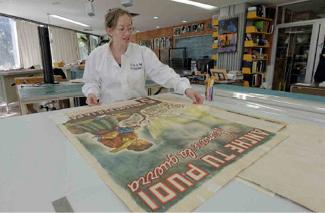
11 INSTITUTO DE INVESTIGACIONES SOBRE LA UNIVERSIDAD Y LA EDUCACIÓN
Educación Superior, which aims to reflect the state of the art of research in higher education in this geographical region.
Institute of Anthropological Research (IIA)
Anthropology is the science that studies human societies and their changes throughout time in their cultural, social, and biological spheres.
The Institute deepens the knowledge of archaeology, ethnology, physical and linguistic anthropology, and tangible and intangible cultural patrimony of urban and rural societies, mainly in America, from its origins to present times.
The Institute of Anthropological Research develops several projects in collaboration with institutes and centers at UNAM, in the country, and abroad.
Physical anthropologists focus on the biological history of our species and its correlation with the environment. Its main research lines refer to population genetics, health, and nutrition in ancient and contemporary groups, human ontogeny, forensic anthropology, physical activity, and sports studies.
Ethnologists study collective identities, indigenous ontologies and interethnic relations, religiousness, myths and rituals, cultural continuity processes and change, gender studies, Mesoamerican ethnohistory, and cultural semiotics.
Archeologists study the material remains of ancient societies to learn about the way of life of their populations, their natural environment, their survival activities, networks of exchange and commerce, types of government, and neighbor relationships. Lastly, linguists research the relationship between

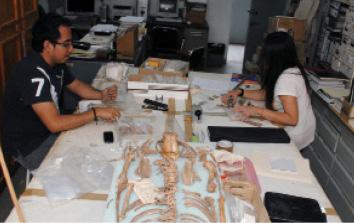
language and its speakers, its evolution, its grammar, and the description of abstract concepts. It also created linguistic models for the native language revitalization and teaching for Nahuatl, Otomi, Huasteco, Purepecha, Maya, and Huave, among others.
It collaborates with the School of Philosophy and Literature, the Institute is the entity responsible for the graduate program in Anthropology, and it participates as an academic entity that co-manages the recently created bachelor’s degree in Forensic Science, as well as the graduate degrees in Music and Industrial Design at UNAM.
It holds one of the best-specialized libraries in anthropological topics in the country, with ten labs (one in linguistics, the rest to support archeological and anthropophysics research).
Their research contributes to SDG 1, No Poverty; 2, Zero hunger; 3, Good Health and Wellbeing, 10, Reduced Inequalities; 11, Sustainable Cities and Communities; 13, Climate Action, and 12, Responsible Consumption and Production, to mention a few.
Through its Digital Synergy Project, it brings anthropological knowledge closer to young people through socio-digital networks.
12 INSTITUTO DE INVESTIGACIONES ANTROPOLÓGICAS
University Program for Studies on Asia and Africa (PUEAA)
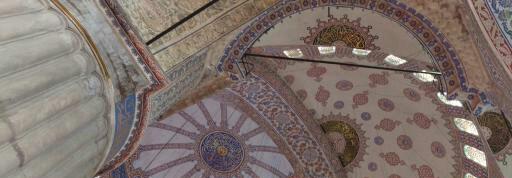
Asia and Africa are redefining the geography of world power. Both have had a historical and paramount relationship with America and Mexico. For centuries they have shared much of their cultures and problems, particularly in the fields of philosophy, history, art, philology, economics, science and their ambition for development.
The University Program for Studies of Asia and Africa (PUEAA) seeks to establish a multi and interdisciplinary institutional working group in order to bring together the various points of view of professors and researchers in diverse academic entities and university institutions, to carry out studies that strengthen the links between Mexico and both continents.
The Program is a relevant national and international reference in comparative and multidisciplinary regional studies, comprehended through complexity. To this end, it incorporates and strengthens teaching, research and outreach activities on Asia and Africa from the Humanities and Social Sciences in Mexico and Latin America.
It promotes theoretical-methodological strategies along higher education institutions in Asia and Africa, to build knowledge that allows addressing similar problems through academic exchange relations, as well as to shape cooperation and dialogue mechanisms with national and international non-governmental organizations, in order to achieve alliances for accomplishing the SDGs.
The Program's University Collection of Asian Studies include texts related to Japan, China, India, and the Asia-Pacific region, on issues about culture, economics, politics, and their relations with Latin America.
In its blog researchers analyzes current affairs such as the resignation of Japanese Prime Minister Shinzo Abe; the border issue between China and India; the agreements for the normalization of Israel's relations with the United Arab Emirates and Bahrain; the worsening of socio-political and economic problems due to the COVID-19 pandemic in countries such as Syria and Yemen, or the impact of fast fashion on the workforce and the environment.
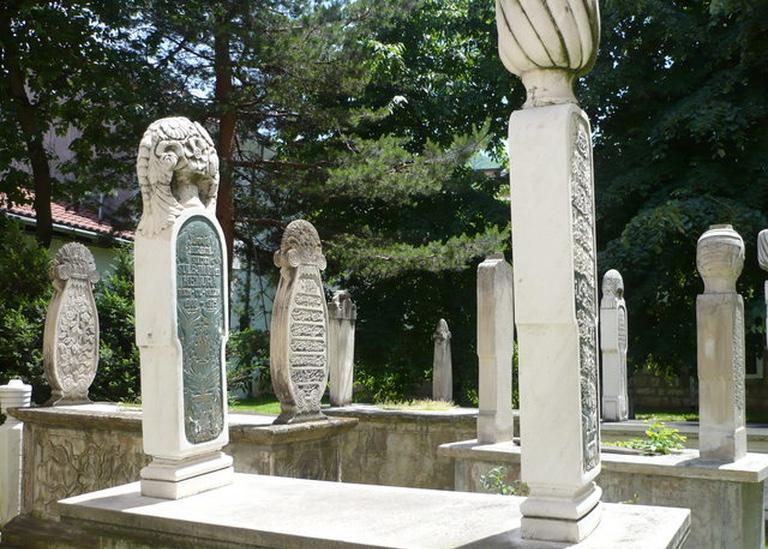
13 PROGRAMA UNIVERSITARIO DE ESTUDIOS SOBRE ASIA Y ÁFRICA
University Program in Bioethics (PUB)
Mexico is facing the challenge to improve and boost, based on ethic principles, its national health systems, biomedical and biotechnological research, as well as to consolidate a model for a sustainable and just development that preserves the environment and biodiversity in a responsible manner.
Therefore, the main objective of the University Program in Bioethics is to develop and promote interdisciplinary research, as well as teaching and disseminating activities that promote a social debate about the dilemmas of bioethics that is, at once, scientific and philosophically rigorous, secular and plural. Its researchers have diverse backgrounds and come from different entities within UNAM and from other institutions in Mexico and abroad. They develop research that allows them to analyze the ethical, social and environmental consequences in six areas: Biomedicine, Biotechonology, Environment and relations with other animals, Civil and political-judiciary problems, Applied neurosciences and Evolutionary basis of ethics. Its lines of academic work are: Medical and Biomedical Ethics; Biotechnological Research and Development Ethics; Ecoethics and Zooethics; Social Bioethics; Neuroethics; Bioethics and Evolution. On Radio UNAM, it

transmits The tree of ideas: art, science and philosophy for life; in the digital media Animal Político its researchers' present current issues, analyzed from a bioethical perspective and makes the Gaceta PUB available to the community.
The PUB seeks to generate a culture of responsibility that promotes respect for human rights, cultural diversity, the environment and the species with which we share the planet, contributing in a very important way to the Sustainable Development Goals.
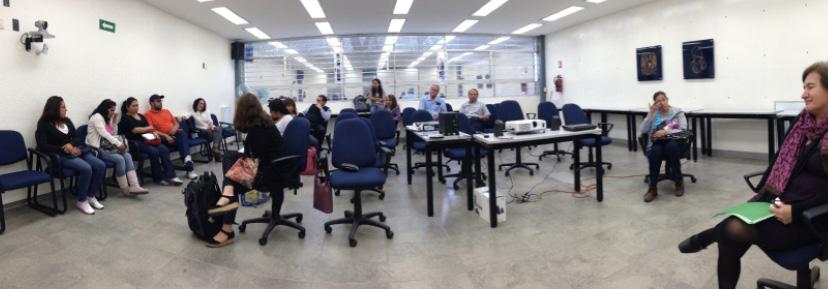
14 PROGRAMA UNIVERSITARIO DE BIOÉTICA


University Program in Development Studies (PUED)
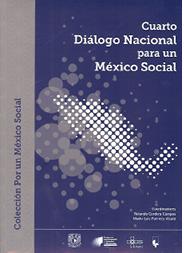
Created in 2011, the University Program in Development Studies consolidates and promotes multidisciplinary research about the changes related to development to effect change in human growth knowledge from an innovative, sustainable and multicultural perspective. Its work is focused on boosting collegiate and interdisciplinary work and on cultivating the scientific and humanistic traditions that allow it to enrich its identity and position within the National Autonomous University of Mexico.
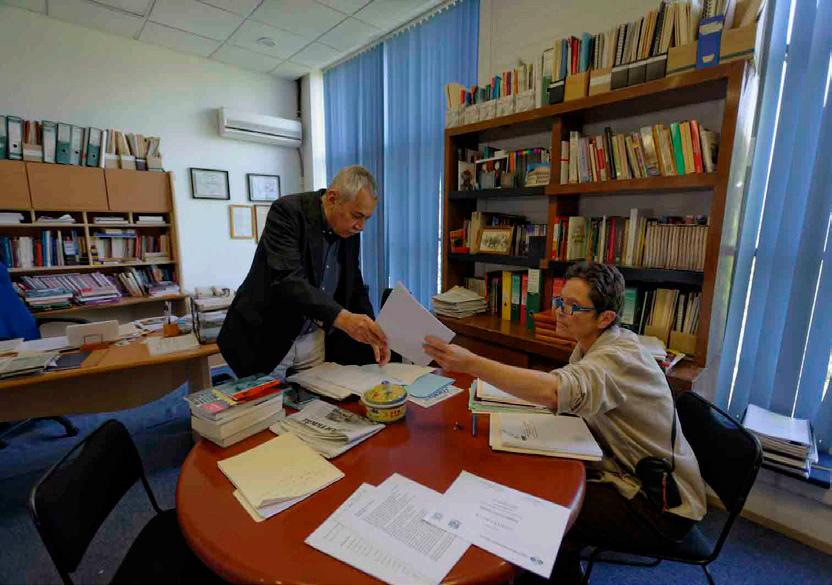

It main research lines are: Inequality, Regional Development; Poverty, Marginalization and Social Lag; Social Security and Welfare Systems; Design, Implementation and Evaluation of Public Policies; New Agendas and the Social Risks for Development; Social groups and Rights Agendas; Health and Development; and Methods and Techniques for Social Research.
As a part of the Coordination of Humanities, it looks to develop, support and promote the theoretical research and practice about the joint agendas linked to development categories.
During the COVID-19 pandemic and the global economic crisis, researchers collaborated with other organizations and universities to analyze the difficult circumstances in Mexico, to contribute to the formulation of consistent and effective policies that would help Mexico overcome these challenges. One of the solutions proposed was the implementation of a universal citizen income.
As an entity of the Humanities Coordination, it seeks to develop, support and promote theoretical and practical research on the agendas linked to the achievement of the Sustainable Development Goals.
15 PROGRAMA UNIVERSITARIO DE ESTUDIOS DEL DESARROLLO
Interdisciplinary Research Center on Sciences and Humanities (CEIICH)

The Center integrates, coordinates, promotes and carries out interdisciplinary academic projects in the fields of science and humanities. It was created on January 20, 1986 as the Interdisciplinary Research Center on Humanities, and on April 28, 1995, it was appointed with the tasks of incorporating the sciences (CEIICH). The Center is committed to research focused on building bridges between the sciences, the social sciences and the humanities to disentangle complex problems and realities.
The Center has stimulated the training of new generations, academic meetings with national and international specialists, and a vast editorial and peer reviewed journal production. Therefore, the CEIICH also contributes to the institutional efforts for strengthening scientific and humanistic culture.
On occasion of the COVID-19 pandemic, the Center made various reflections on the economic and social effects of the health crisis, the governmental communication on the matter, the challenges of the postCOVID-19 reality and on the effects on the personal, family and community life of young indigenous women, among others issues.
Considering that the different concepts of knowledge integration and articulation are not excluding but complementary, the CEIICH promotes, applies and
disseminates the approach provided by interdisciplinary research.
Currently, its research projects are grouped into 11 programs: History of Science; Science and Technology; Social Sciences and Literature; Cyberculture and Development of Knowledge Communities; Visual Studies; The World in the 21st Century; Cities, management, territory and Environment; Commodities and services; Power, subjectivity and culture; Law and society, and feminist research, dedicated to the generation of original knowledge, the analysis and proposed solutions to the Sustainable Development Goals, particularly those concerning Quality Education, Gender Equality, Decent Work and Economic Growth; Reduced Inequalities, Peace, Justice and Strong Institutions, and Sustainable Cities and Communities.
16 CENTRO DE INVESTIGACIONES INTERDISCIPLINARIAS EN CIENCIAS Y HUMANIDADES

TOWER OF HUMANITIES II
Center for Research and Gender Studies (CIEG)
Originated from the University Program of Gender Studies, it obtained its category of Center on December 2016. Its objective is to carry out and promote research activities with its own theoretical and methodological developments, gender perspective, inside and outside the UNAM. It promotes an interdisciplinary approach to areas linked to equity, human rights and the elimination of gender violence through teaching, linkage, training and extension activities.
Its purpose is to link gender studies to other critical perspectives with the aim of understanding, collectively and in a plural and interdisciplinary manner, the diverse forms in which women and socially underrepresented groups contribute to the processes that configure the construction of citizenship and national culture.
It has established specific lines of research and knowledge production that are related to migration, exile, violence and justice, as well as the construction of new concepts for space, culture, mobility, identity and citizenship, immersed in the exacerbated modernization processes. Its internal academic project includes the articulation of hard data and the implementation of measures for achieving equity and offering pedagogical modalities that shed light into areas where power relations need to be transformed.
Reasons for reflection and analysis during the health crisis were: 1) The work overload of women in quarantine conditions due to the COVID-19 pandemic. 2) The increase in violence against women during confinement, which translated into physical attacks and psychological
abuse by men. 3) The participation of men in domestic and care work in times of #StayHome.
The CIEG contributes to the knowledge and transformation of the relationship between men and women through academic strategies and proposals that address social demands and problems from a broad perspective, promoting the construction of gender equality and democracy, contributing particularly to the achievement of the SDGs. 5, Gender Equality, and 10, Reduced Inequalities.
It offers two certificates annually: Gender Relations: Building Equity Between Women and Men, and Sexual Diversity; as well as academic stays, workshops and seminars. On a graduate level, it created and strengthened the Graduate Interdisciplinary Orientation in Gender and Cultural Studies, offering the nucleus of this option to 12 graduate degrees at UNAM. Throughout the last ten years, the program has boosted education intervention projects in diverse government entities throughout the country, such as the Ministry of Education, the Mexican Secretariat of National Defense, the Supreme Court, and the Electoral Tribunal of the Supreme Court, among others. Also, it propelled a cultural pedagogic proposal to the interior of the Female Center for Social Rehabilitation (Cefereso) of Santa Marta Acatitla. These projects have allowed the program to join efforts and contribute to the transformation of reality.

18 PROGRAMA UNIVERSITARIO ESTUDIOS DE GÉNERO
Institute of Research on Library and Information Sciences (IIBI)
Library Research aim to understand and study information, the materials that constitute it and the environment where it is used with the purpose of improving the quality and quantity of information that society needs.
The Institute of Research on Library and Information Sciences was founded on March 30, 2012 and it has 28 researchers and 26 academic technicians.
It is a part of the Subsystem of Humanities and it has the objectives to: carry out theoretical and applied research; increase the general knowledge of these fields; develop multi and transdisciplinary research; contribute solutions to national and world problems linked to Library Sciences and Information based on research; creation of public policies and social interventions; support the training of human resources specialized in higher education; disseminate and promote the research done by the Institute in the country and abroad; and to support and advise UNAM on issues related to this field.
The Institute is divided in nine areas: Organization of Information and Knowledge; Technologies of Information and Knowledge; Information, Knowledge and Society; Metrics for Information and Scientific Knowledge; Users of Information; Reading; Services and Information Resources; Library Sciences Education and History and Fundamentals of Library Sciences and Information Studies. These areas include 42 lines of research, where there are 20 individual and nine collective projects.
To carry out the academic activities of research and

the creation of a graduate program in Library Sciences and Information Studies, the Institute has a highly specialized library with 20,543 books, 24,680 periodicals and 1,918 theses, among other materials. It has 80 monograph titles published by the Institute.
In addition, it publishes the journal Library Sciences Research, which has been integrated into the main indexes given its quality, such as Social Science Citation Index (SSCI), the Index of Mexican Journals in Science and Technology of the National Council for Science and Technology, and the Library and Information Science Abstracts (LISA).
Attentive to the social information requirements, the IIBI seeks its organization and that of knowledge at the service of the Sustainable Development Goals; new ways of reading, learning, and citizenship in the digital environment, and to freeing Indigenous communities from obstacles and challenges for obtaining information, among many other topics that it addresses in conferences, tables, and discussions in its permanent seminar with the participation of national and foreign specialists.
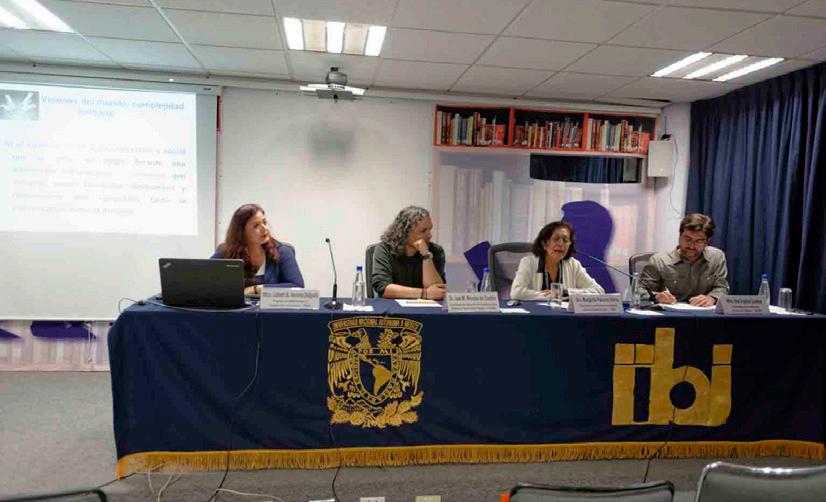
19 INSTITUTO DE INVESTIGACIONES BIBLIOTECOLÓGICAS Y DE LA INFORMACIÓN
Center for Research on North America (CISAN)
The Research Center on North America has its origins, firstly, in the University Program on the United States of America and, secondly, on the Center for Research on the United States of America (CISEUA). However, there was an imperative need to deepen the knowledge about the dynamics of integration, in the regional and global scale, which resulted in the systematic study of Canada. It was then that the Center’s name was changed to its current denomination.
The CISAN has the initiative to boost and implement important research networks about North America and its relation to the world, looking to strategically insert its activities on the theoretical and conceptual trends in order to respond to an increasing need for new knowledge derived from the transformations in the economic, political, social and cultural spheres. With 24 researchers and 20 academic technicians, the CISAN organizes its individual and collective projects into six main research lines: Security and Governability; Economic, Integration and Development Processes; Migration and Borders; Identities and Cultural Processes; Actors, Structures and Social Processes; and Political Ideas and Institutions.
Through the analysis of political, economic, social and cultural phenomena, CISAN contributes to the understanding of the Sustainable Development Goals: 1. No Poverty, 2. Zero Hunger, 3. Health and Well-being, 4. Quality Education, 5 . Gender Equality, 8. Decent Work and Economic Growth, 9. Industry, Innovation and Infrastructure, 10. Reduced Inequalities, 11. Sustainable Cities and Communities, 12. Responsible Consumption and Production, 13. Climate Action, among. others.
Its faculty gives courses in the graduate program at the School of Political and Social Sciences, in the master’s degree in US-Mexico Studies at the School of Higher Studies (FES) Acatlán, and in the Schools of Law, Economy, Accounting and Business Administration, Philosophy and Literature.
Its publications include the journals North America and Voices of Mexico, in both print and electronic form.

20 CENTRO DE INVESTIGACIONES SOBRE AMÉRICA DEL NORTE
Center for Research on Latin America & The Caribbean (CIALC)
The Research Center on Latin America & The Caribbean (CIALC) is the academic space that carries out the Latin Americanist vocation of the UNAM. The CIALC links the knowledge of the reality in Mexico with that of Latin America and the Caribbean. This interest results from the understanding that Latin America has similarities and parallelisms; that it has common origins and that it is the product of converging historical processes, through which, without a common intention, similar responses emerged to parallel problems. The CIALC contributes from an independent and critical perspective to a better and increased knowledge of Latin America and the Caribbean, which helps to build a better understanding of its reality.
From an interdisciplinary perspective, the CIALC has generated a new agenda for research about the topics that have gained great relevance in the past years, such as migration, human rights, cultural traditions, and others.
The tasks of the Center are: a) to conduct research about Latin America and the Caribbean; b) disseminate the studies about the region that are done at UNAM and in Mexico; c) contribute to the formation of academic personnel qualified in the field; d) support the research activities at UNAM and other national institutions and e) promote the development of Latin American studies in the country and abroad.
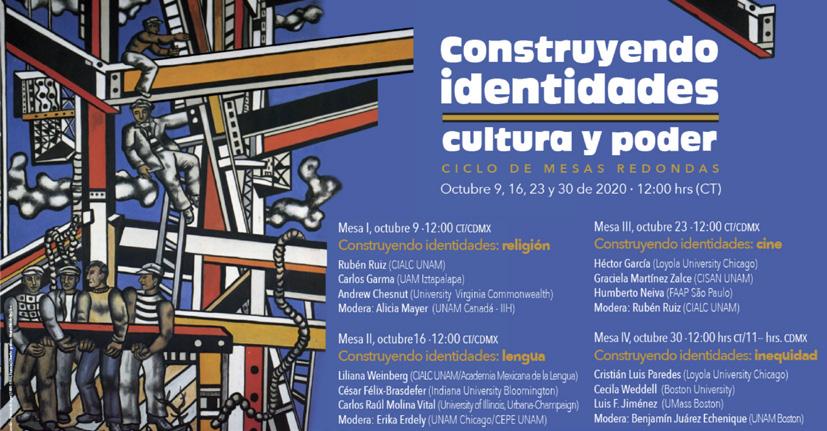
Some of its researchers analyzed the situation of migrants during the COVID-19 pandemic; their vulnerability to human trafficking groups, health risks in shelters, and violence and stress suffered because of their condition.
From an interdisciplinary perspective, the CIALC has generated a new research agenda on topics that have become highly topical in recent years, such as migration, human rights, cultural traditions and others related to the Sustainable Development Goals.
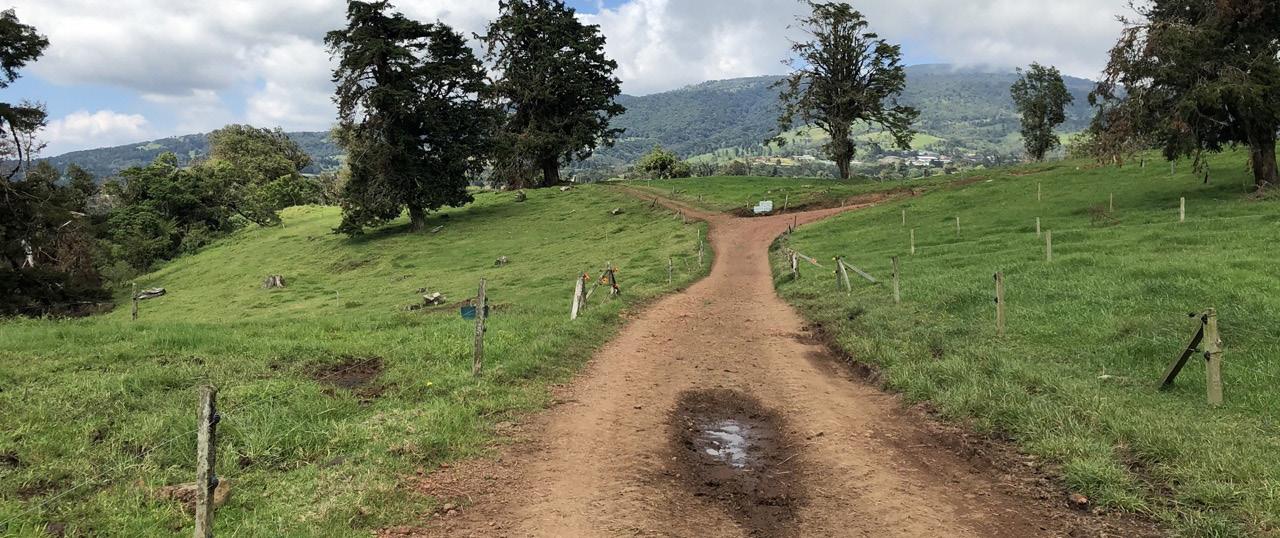
21 CENTRO DE INVESTIGACIONES SOBRE AMÉRICA LATINA Y EL CARIBE
Universtiy Program of Studies in Cultural and Intercultural Diversity (PUIC)
IIt has the objective to generate, develop and promote the knowledge of cultural diversity and interculturality in Mexico and other regions, to use new theoretical and methodological perspectives, and implement the most innovative and relevant resources for these tasks.
Through the digital platform Toda la UNAM en Linea, the program allows students and the general public to access its digital archives, publications and works, fulfilling one of its principal purposes: to build information systems with free access to these materials.
The PUIC is working to make the course Mexico, Multicultural Nation available online. This course is the only one taught in all 15 colleges and two high schools of the UNAM Sciences and Humanities School. Databases of Indigenous People and Megaprojects Development in Latin America are available online.
The recognition of cultural diversity and interculturality are essential for achieving the Sustainable Development Goals.
The Digital Library of Mexican Traditional Medicine is a highlight of the program and is integrated by a specialized dictionary with 1,200 terms. Also, the Atlas of Plants created through fieldwork includes 1,046 monographs and the collection of traditional medicine of indigenous communities.
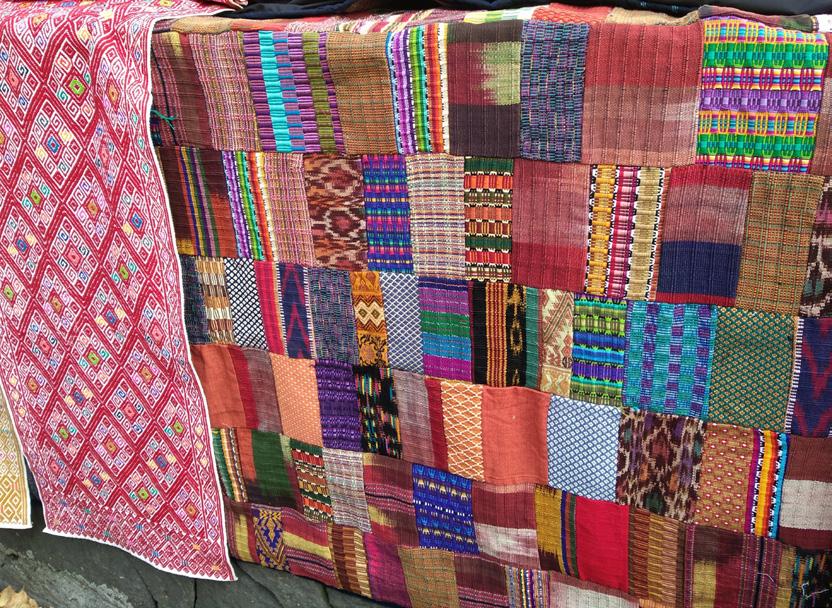
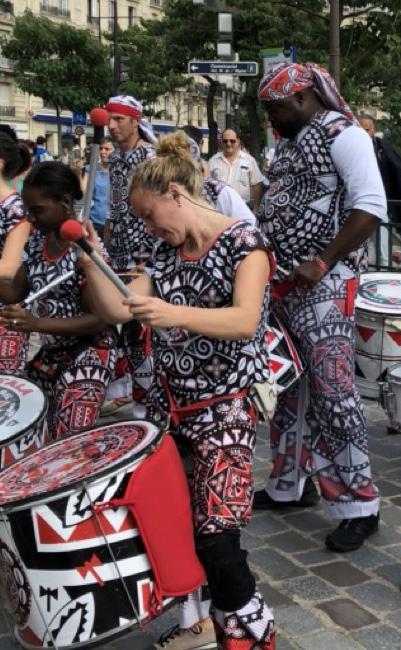
Among the countries that access these content are: Mexico, several Latin American countries, the United States, Spain, Ukraine, Finland and New Zealand.
The digitalization of more than 100,000 materials to guarantee public access to this information stands out.
Their documentary heritage, dating back to 1940, includes letters, books, newspapers and journals, among other materials.
Their researchers developed a map on the impacts of COVID-19 on Indian and black communities in Latin America to show how the pandemic spread among them.
22 PROGRAMA UNIVERSITARIO DE ESTUDIOS DE LA DIVERSIDAD CULTURAL Y LA INTERCULTURALIDAD
UNIVERSIDAD COPILCO ESTADIO OLIMPICO
CENTRAL RESERVA ECOLOGICA
ECOLOGICA
DEPORTIVOS
CAMPUS
RESERVA
CAMPOS
AV. DELF I N MADR I GAL A V I N S U R G E N T E S
AV.UNIVERSIDAD EJE10SUR CERRODELAGUA AV. SAN JERONIMO
ZONA CULTURAL AV.DELIMAN MUAC UNIVERSUM CIRCUITO MARIO DE LA CUEVA RIO MAGDALENA 1 2 4 3 5 6 7 8 9 10 11 13 14 15 12
DR. GALVEZ
Coordination
Institute of Philological Research
Institute of Philosophical Research
Institute of Aesthetic Research
Institute of Social Research
University Program of Studies on Higher Education
Institute of Economic Research
Institute of Juridical Research
Institute of Historical Research
Institute of Bibliographical Research
Institute of Research on the University and Education
Institute of Anthropological Research
University Program of Studies on Asia and Africa
Center fo Research on North America
Center for Research and Gender Studies
Interdisciplinary Research Center on Sciencies and Humanities
Institute for Research on Library and Information Sciences
Center for Research on Latin America & The Caribbean
University Program in Bioethics
University Program in Development Studies
University Program of Studies in Cultural and Intercultural Diversity
LOCATION
of Humanities
1 2 3 4 5 6 7 8 9 10 11 12 13 HUMANITIES TOWER II 15 14 OLD GRADUATE UNIT


Leonardo Lomelí Vanegas, PhD. Rector
Patricia Dolores Dávila Aranda, PhD. General Secretary
Tomás Humberto Rubio Pérez, MSc.
Secretary of Administration
Diana Tamara Martínez Ruíz, PhD. Secretary of Institutional Development
Raúl Ascencio Aguilar Tamayo
Secretary for the Prevention, Attention and Universitary Security
Hugo Alejandro Concha Cantú, MSc. Attorney General
Miguel Armando López Leyva, PhD. Coordinator of Humanities
Manuel Suárez Lastra, PhD.
Director of the General Directorate for the Science Divulgation
Text: Rosalba Namihira Guerrero, MA., DGDC, with information from the Subsystem of Humanities and Social Sciences Research, Gaceta UNAM, UNAM Global, and Statistical Agenda UNAM.
1st. Translation: Inés Familiar Miller / Alejandra Vega (UNAM Los Ángeles)/ Subsecuent translation, Rosalba Namihira.
Design: Lucía Itzel Guerrero Zamudio/Rosario G. Fajardo H. Photography: Ernesto Navarrete, DGDC / Subsystem of Humanities and Social Sciences Research.
Please note that any reproduction of images, either in whole or in part, for purposes other than UNAM´s is not permitted without the written permission of the DGDC.






















































